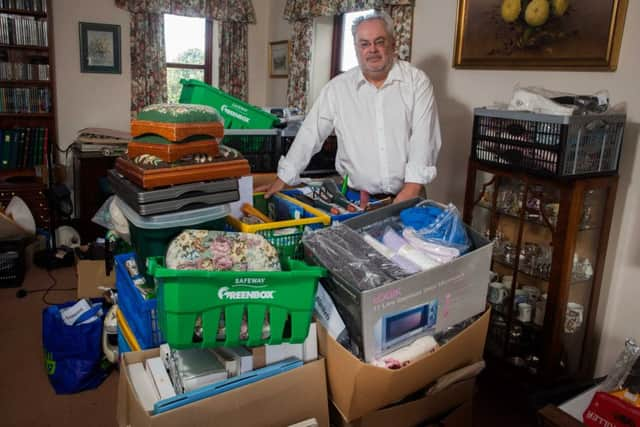Crackdown after charities sell OAP’s details to con artists


Widower Samuel Rae’s details were passed on hundreds of times after he forgot to tick a box on a lifestyle survey 21 years ago.
The 87-year-old former army colonel’s data has since been given to charities, and even some companies associated with scams with the result that he has lost almost £35,000.
Advertisement
Hide AdAdvertisement
Hide AdMr Rae’s son Chris said his father, who lives in St Buryan in Cornwall and suffers from dementia, had been treated in an “absolutely disgraceful” way by charities.
It comes just months after the government commissioned a review into the way charities carry out their fundraising following the suicide of Britain’s longest-serving poppy seller Olive Cooke.
Mrs Cooke, 92, from Fishponds in Bristol, had told how she was receiving up to 267 letters in a month and regular phone calls from charities asking her for donations.
Information Commissioner Christopher Graham told BBC Radio 4’s Today programme his office would be investigating and said: “If the law has been broken, we will take action.
“Whether or not Samuel Rae ticked the box in 1994 and is still being plagued with unwanted mail and unwanted approaches is beside the point.
“The Data Protection Act is very clear - the very first principle is that your data is only processed fairly and lawfully. What’s described this morning doesn’t look like that.”
A failure to tick a box “isn’t consent and it doesn’t give you the right to trade in people’s personal information years after the event”, he said.
Mr Graham said: “If there’s any connection between the good work that charities do and the scam merchants, that’s very concerning and we’ve got to get to the bottom of how this information was passed on”.
Advertisement
Hide AdAdvertisement
Hide AdBut he warned: “There’s a danger here of blackening a whole sector. Charities seem to be becoming the new dirty word, and that clearly isn’t fair.
“We’ve got to look at the specifics of the case and work out exactly what has happened and if the law has been broken, we will act.”
The Information Commissioner’s Office’s (ICO) head of enforcement, Steve Eckersley, added: “We have been presented with some clearly concerning findings about data sharing and sale in the charity sector, and we will be investigating them further.
“The law applies to charities as it does to any other company. We already have an ongoing investigation into marketing practices, and where we find companies have broken the law we will take action.”
The investigation found that at least 15 charities sold or passed on Mr Rae’s details up to 200 times between them, including to companies responsible for defrauding the elderly.
The RSPCA was among charities which contacted him for up to five years after he asked them to stop, some asking him for money up to 38 times a year, while the PDSA passed his data on 10 times.
The Cancer Recovery Foundation and the Diabetes Research and Wellness Foundation also passed his details on to Best Of and Biotonic, two foreign companies which have faced legal action for tricking older people out of money and together received almost £4,500 from Mr Rae.
Since filling out the survey in 1994, he has also been contacted by fundraising appeals at least 731 times.